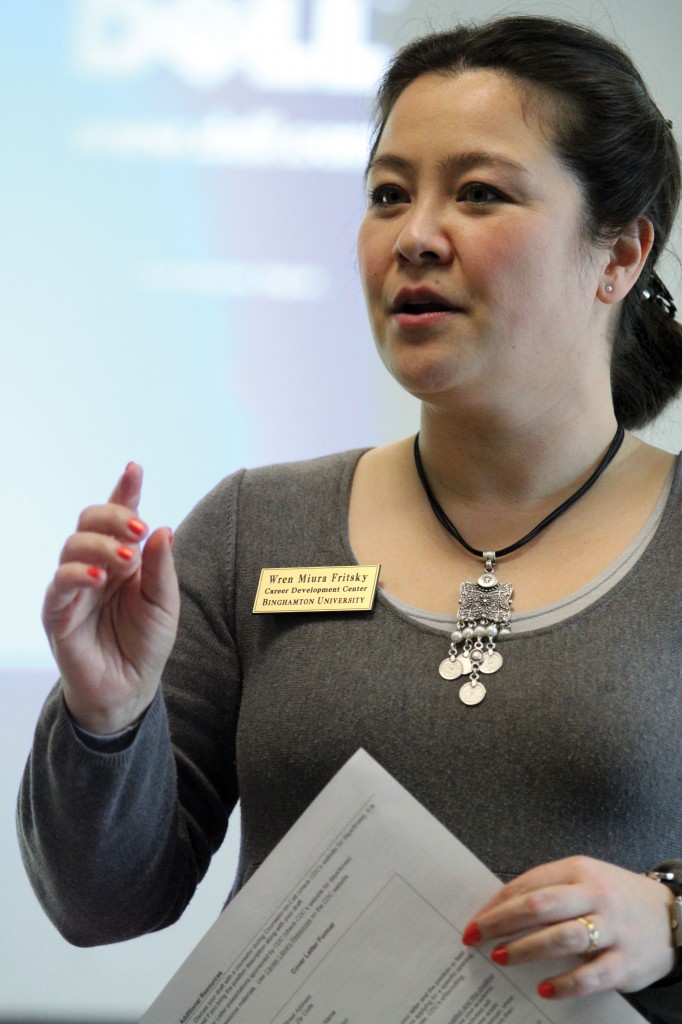
Keeping with the spirit of Valentine’s Day, students learned how to write a kind of love letter on Thursday, one that will hopefully lead to a serious commitment — to an employer.
The Career Development Center (CDC) hosted an event titled “Cover Letters Are Like Love Letters,” which discussed how to impress potential employers with a personalized résumé introduction.
“When there is not an opportunity to talk with the person that you are giving your résumé to, the cover letter fills up that gap,” said Wren Fritsky, a career counselor from the CDC who hosted the workshop. “So, it always accompanies the résumé and is important in talking about why you are interested in the position, why the employer is interested in you, and how you getting the job would be mutually beneficial to you and the employer.”
Fritsky said that an important part of writing a cover letter, just like when writing a love letter, is to personalize its contents.
“You are writing the cover letter for a specific person,” Fritsky said. “No love letter to a specific person starts with ‘To Whom It May Concern.’ That’s why I really want you to remember: that a cover letter is a love letter, and that there is no such thing as a generic love letter.”
A fundamental role of a cover letter, Fritsky said, is to grab the reader’s attention by giving them reasons to be interested in you.
“You want to focus on how the employer will benefit from reading the cover letter,” Fritsky said. “You need to show them with proof through examples that are relevant. You want to show how you added value in the past to a project or internship or previous job, etc.”
Fritsky also explained that just as rejection is natural when seeking a relationship, it also can happen when searching for a job, and it is important to deal with it in a productive way.
“When you are rejected it is important to remain cool and not go on a crazy rampage and trash the other person,” Fritsky said. “You do not know the reason of the rejection and so you want to stay professional and respectful, because you never know, they may come around in the end.”
Fritsky concluded the event by listing the three things she said employers want to know.
“There are only three things employers really want to know,” Fritsky said. “Number one: competence. Can you do the job? Number two: will you do the job to the best of your ability? Just because you can do it, doesn’t mean you want to do it. And number three: do you fit in the organization? Its not just the skill level they are looking for since that can always be taught — what they really look for is passion and desire.”
Zeynep Ozturk, a senior in the School of Management, said that the theme of the event helped her understand how to better write a cover letter.
“I learned about how you have to write a cover letter based on the company and their interests, not your interests, just like when you have to write a love letter,” Ozturk said. “You are basically proposing to a company to work with them, and if you get hired, then you will be in a relationship with them.”
Ray Kim, a senior majoring in economics, said he saw the similarities between a cover letter and a love letter as an informative way to learn a new skill.
“You write love letters to attract people, just like you write cover letters to attract employers,” Kim said. “This was my first time trying to write a cover letter, so I got the basic information for what I should type in and the theme really helped me in understanding her points.”


